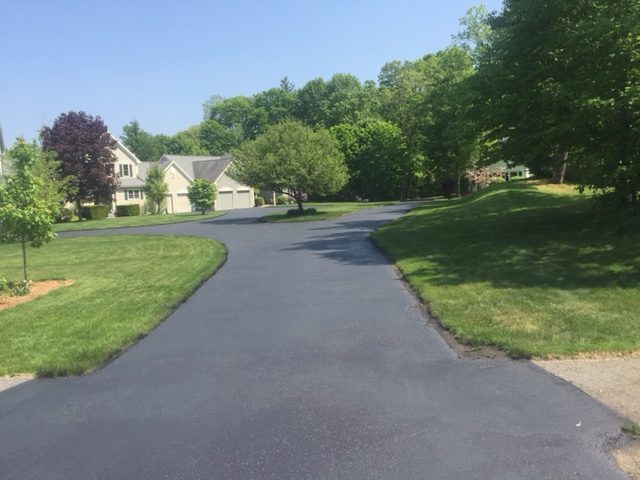Reliable Asphalt Repair: Cold Mix Sealing Techniques Introduced
Reliable Asphalt Repair: Cold Mix Sealing Techniques Introduced
Blog Article
Cold Mix Asphalt Vs. Hot Mix Asphalt: Which Is Right for You?

Composition Distinctions
Cold mix and hot mix asphalts differ significantly in their structure, with distinctive qualities that influence their performance and applications. Cold mix asphalt is created by emulsifying the asphalt binder with water and an emulsifying representative prior to mixing it with accumulation. This approach enables the asphalt to be convenient at reduced temperature levels, making it suitable for temporary repair services and for usage in colder weather. Hot mix asphalt, on the other hand, is produced at heats, typically between 300-350 ° F, which aids to attain better compaction and a much more long lasting end product. The hot mix asphalt production process includes warming the accumulation and asphalt binder independently before incorporating them at the asphalt plant.
In addition, cold mix asphalt tends to be less dense and more flexible than hot mix asphalt. This adaptability makes it better suited for locations with greater degrees of motion, such as driveways or roadways with hefty website traffic. In comparison, warm mix asphalt is recognized for its high longevity and resistance to rutting and breaking, making it a recommended selection for freeways and high-traffic roadways where durability is important.
Setup Process Differences
The process of setting up cool mix and hot mix asphalt displays notable variations in their treatments and requirements. In contrast, hot mix asphalt demands a more intricate setup process. Due to the heating demands, warm mix asphalt installations are normally lugged out by professionals with specific tools, ensuring a more long-term and structurally audio result.
Toughness and Long Life Aspects
When thinking about asphalt choices, resilience and longevity are crucial variables to examine for enduring pavement efficiency. Hot mix asphalt (HMA) is known for its exceptional durability and long life.
In terms of longevity, HMA commonly outshines CMA because of its superior toughness and resistance buildings. HMA pavements have a longer solution life, needing much less regular repairs and upkeep, which can translate investigate this site to set you back savings in the lengthy run. Furthermore, HMA sidewalks are a lot more conveniently customizable to fulfill specific task demands, better improving their durability.
Expense Considerations
Thinking about the financial ramifications is an essential aspect when reviewing the choice between hot mix asphalt (HMA) and cool mix asphalt (CMA) for pavement jobs. While the first cost of warm mix asphalt is typically greater than that of cool mix asphalt, HMA typically gives a more economical remedy in the future because of its premium resilience and durability. HMA is recognized for its ability to site endure rush hour loads and severe weather, lowering the need for frequent repair work and upkeep. On the various other hand, cool mix asphalt is extra budget friendly upfront but might require more frequent patching and resurfacing, resulting in higher maintenance costs in time.
In enhancement to product expenses, it's necessary to think about the costs related to installation and upkeep when comparing HMA and CMA. HMA typically requires specialized tools and experienced labor for correct installment, which can affect overall job costs. Conversely, CMA is easier to deal with and can often be applied making use of easier techniques, possibly decreasing installation expenses. Inevitably, the decision in between HMA and CMA ought to consider not simply the initial cost but likewise the long-lasting financial implications to identify one of the most economical option for the particular pavement task.
Environmental Influence Contrast
Comparison of the environmental effects in between hot mix asphalt (HMA) and chilly mix asphalt (CMA) discloses unique differences in sustainability methods. HMA manufacturing calls for high temperatures, resulting in increased energy intake and greenhouse gas exhausts. The process additionally releases unstable natural substances (VOCs) and hazardous air contaminants (HAPs) right into the environment. On the other hand, CMA is produced and used at reduced temperature levels, reducing energy usage and discharges dramatically. The lower production temperatures of CMA lead to reduced gas usage and lower levels of CO2 discharges, making it a much more eco friendly option.
Moreover, the visit the site usage of CMA commonly includes reusing existing asphalt sidewalk, advertising resource conservation and decreasing the quantity of waste sent out to landfills. By deciding for CMA over HMA, road construction tasks can contribute favorably to environmental preservation initiatives.
Conclusion
To conclude, the option in between cold mix asphalt (CMA) and warm mix asphalt (HMA) relies on different variables such as composition, installment procedure, toughness, longevity, expense, and ecological impact. asphalt repair. While CMA provides a fast and cost-effective service for small repairs, HMA makes sure superior sturdiness and durability for rush hour areas. Think about these variables carefully to identify which sort of asphalt is the ideal selection for your paving needs

Taking into consideration the monetary effects is a vital facet when assessing the selection between warm mix asphalt (HMA) and cold mix asphalt (CMA) for sidewalk projects. While the preliminary price of hot mix asphalt is commonly higher than that of chilly mix asphalt, HMA often offers an extra cost-effective option in the long run due to its exceptional longevity and durability. asphalt repair.Comparison of the environmental effects in between warm mix asphalt (HMA) and cold mix asphalt (CMA) exposes unique distinctions in sustainability practices.In conclusion, the option in between cool mix asphalt (CMA) and warm mix asphalt (HMA) depends on numerous factors such as structure, setup procedure, longevity, long life, cost, and environmental impact
Report this page